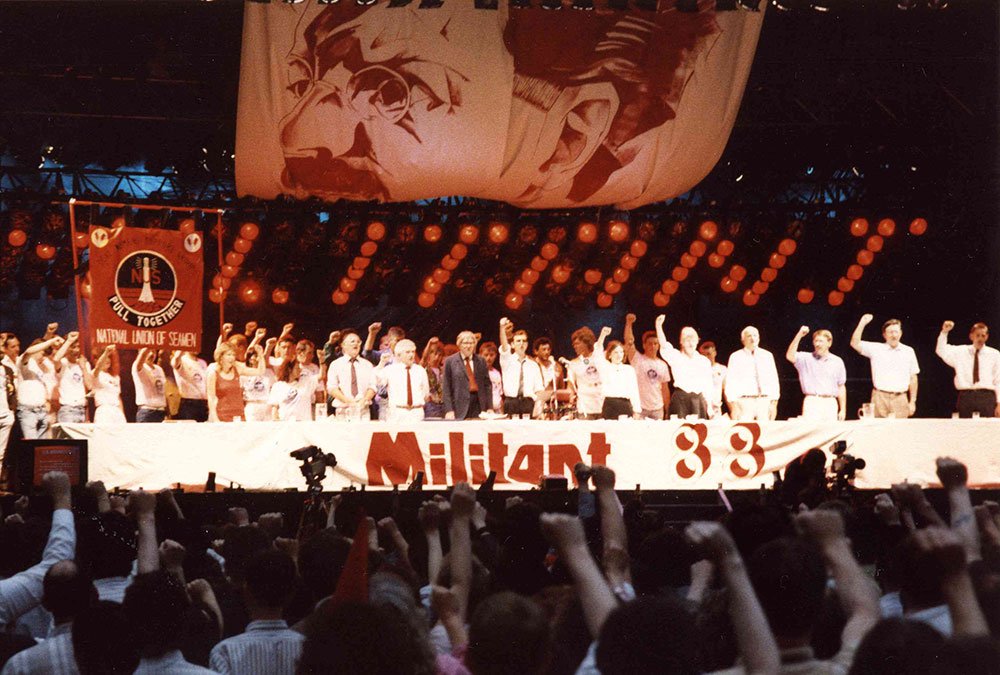The Committee for a Workers’ International (CWI) has been plunged into a convulsive crisis, which is most likely going to end in a split. At the centre of the crisis are developments in their Irish section. From the material available to us from their internal discussions it appears that the Irish section is being accused of adapting to identity politics, concentrating on women’s and LGBTQ+ issues to the detriment of work in the trade unions, bending towards reformism and at the same time adopting a sectarian stance. This emerges both from the criticisms of the International Secretariat (IS) majority faction and of one of their MPs, Paul Murphy.
From a conflict with the leadership of their Irish section, now the IS of the CWI finds itself in conflict with its Greek and Belgian sections, and also the Swedish and US sections. The seriousness of the crisis the CWI is facing was revealed at their recent International Executive Committee (IEC) meeting, where the IS only had the support of a minority of the IEC members. In fact, IEC members from 14 countries – a majority – voted against the IS proposals. Furthermore, the IS itself is divided, with a minority in sympathy with the IEC Majority. The fact that Peter Taaffe has lost the majority on the IEC indicates that a revolt is taking place against the international leadership of the CWI. That explains why the IS majority has launched a faction of its own and has opened up a period of internal debate, which will drag out over the course of 2019.
The reason for the declaration of a faction by a majority of the IS members is clearly due to the old leadership de facto losing control. Rather than accepting the decisions of a body that stands above the IS, they are determined to hold on to control, ride roughshod over the sections of the CWI and impose their will even if this risks a massive split.
Bullying tone
The crisis has produced a statement from Taaffe, which adopts a bullying tone throughout, full of attacks and recriminations against his opponents. There is very little in the way of political argument, while all sorts of random facts are drawn on in an attempt to strengthen his case. This approach is not surprising. From our own experience back in 1991-92 one thing we can be assured of is that the leaders of the Irish section of the CWI, and the members who support them, will not be treated with patience and understanding; there will be no genuine attempt to listen to what they have to say and convince them through patient discussion and arguments. Whatever they say or write will be taken out of context and used to present them as pariahs, and everything, including the kitchen sink, will be thrown at them.
The other side of this situation is that Taaffe and his supporters in the leadership of the CWI will dedicate time and energy to boosting their own image in an attempt to establish their authority, while at the same time rumour-mongering in the corridors. In his faction document, Taaffe refers to a number of past successes of the Socialist Party in Britain, although curiously enough, they are all in the very long-distant past, from before the 1991-92 split. It would seem he has little to boast about since then. What immediately jumps out at you when reading his document is that it is full of what he did as an individual – a clear sign of an overblown ego.
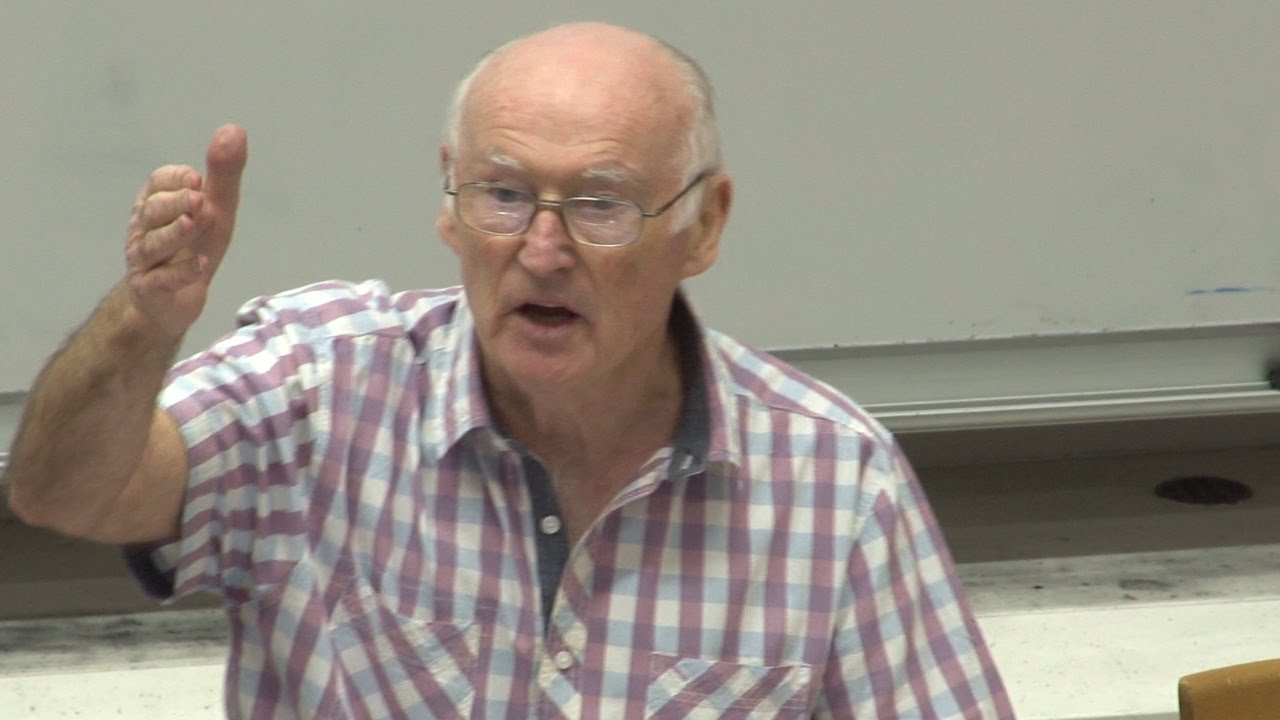 To those of us who are well acquainted with the past record of Peter Taaffe and his associates, and their method of building the organisation, this crisis comes as no shock / Image: public domain
To those of us who are well acquainted with the past record of Peter Taaffe and his associates, and their method of building the organisation, this crisis comes as no shock / Image: public domain
Amongst the successes Taaffe chooses to highlight is the position won in the PCS union in Britain, but he decides to ignore the fact that this position is now in the process of being destroyed in a dispute which, amongst other things, involves the question of sectarianism. He also mentions “the success of our approach” to identity politics by mentioning the creation of Panther UK in the early 1990s. Again, he conveniently forgets that this was a clear case of adaptation to petty-bourgeois ideas, which, instead of serving to recruit Black and Asian youth to revolutionary politics ended up with the whole of Panther UK splitting away to Black nationalism – not exactly a great success!
On the other hand, the Irish section of the CWI has at least some, more recent, successes to boast about. It has three MPs, and has played a key role in the water charge campaign and the more recent referendums on abortion and same-sex marriage. The Irish members must be asking themselves on what authority Taaffe is lecturing them.
To those of us who are well acquainted with the past record of Peter Taaffe and his associates, and their method of building the organisation, this crisis comes as no shock. The only surprise is that it did not come much earlier.
Taaffe’s method has been one of seeking quick, easy results, in a word: shortcuts. That was the case back in 1991-92, and Ted Grant described it as a “shortcut over a cliff”. He forgot long ago that there is no substitute for building patiently from the bottom up, with meticulous attention to the theoretical education of the cadres. Without consolidating a solid cadre base, there is not the framework around which a much larger and more influential tendency can be built. Shortcuts can give what seem to be quicker results in the short term, but it is like building on sand. As soon as the winds of the class struggle blow on such a structure it starts to crack and eventually collapse. That is what is happening now to the CWI.
Ted Grant’s warnings
Ted Grant, during the debates in 1991, explained to the leadership of the Militant that although they had the big office, the big printing press and a sizeable apparatus, in their hands and with their methods and ideas, all of that would “turn to dust”. Long ago, the big office was lost, as was the printing press and the apparatus that had been so painstakingly built up. Now we are looking at the final act in what Ted Grant had predicted.
An interesting point that emerges from the material on the Irish section published in the CWI Internal Bulletin is the idea of “reaching the masses”. This shows they have lost all sense of proportion. Ted Grant always insisted on revolutionaries having a sense of proportion. Lose this and you begin to sink into the swamps of either opportunism or sectarianism, or a combination of both. There needs to be a balance between activity and education. Lose this balance and you begin to drift away from a principled Marxist position.
Let us retrace here, briefly, the history of this tendency. The founder of the Militant Tendency, out of which the CWI emerged, was comrade Ted Grant, who worked out the theory, principles, policies and tactics that made the Militant Tendency the most successful Trotskyist organisation in the world since the Russian Left Opposition.
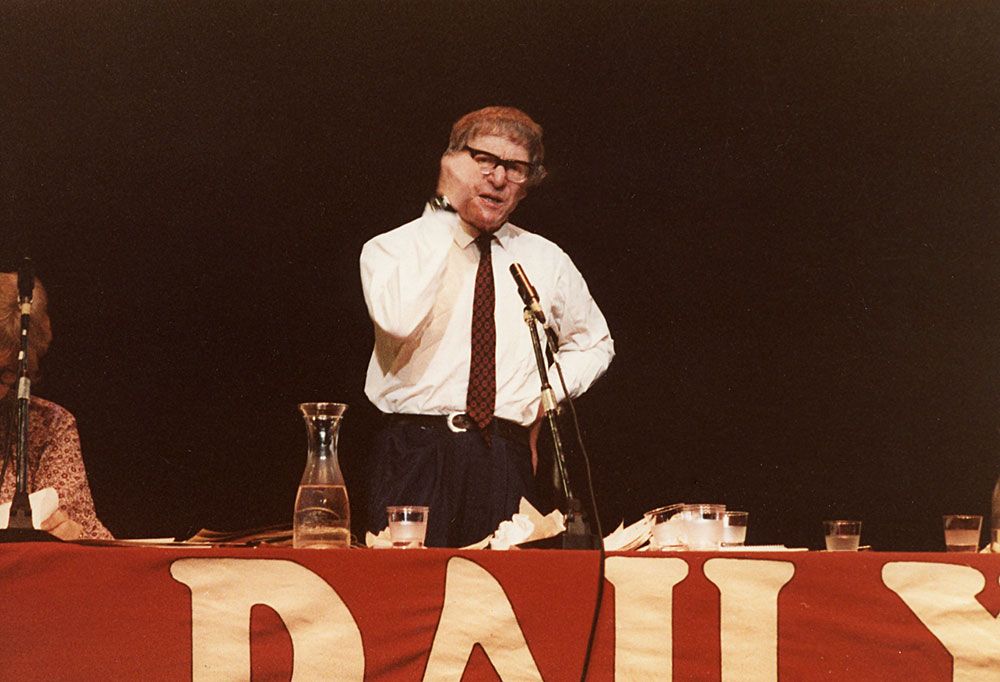 Ted Grant always insisted on revolutionaries having a sense of proportion. Lose this and you begin to sink into the swamps of either opportunism or sectarianism, or a combination of both / Image: IMT
Ted Grant always insisted on revolutionaries having a sense of proportion. Lose this and you begin to sink into the swamps of either opportunism or sectarianism, or a combination of both / Image: IMT
Under the political leadership of Ted Grant, the Militant Tendency was regarded as a legitimate current within the labour movement. It had re-established the clean banner of Trotsky that had been dragged in the mud by the myriad of sects claiming his mantle. It was respected by workers and youth around the world for its ideas, its clean democratic traditions and its clear orientation towards the mass organisations of the working class.
The Militant Tendency became a serious force in the British labour movement, with thousands of supporters, a big office in London, a large number of full-time workers, three Members of Parliament in Westminster, dozens of local councillors elected on a Labour Party ticket and a base in the British trade unions. It led Liverpool city council and became a household name as a result of our successful campaign against the Poll Tax, which brought down the government of Margaret Thatcher.
Unfortunately, a bureaucratic clique, led by Peter Taaffe, slowly emerged within the tendency over a number of years. This came about through a gradual downplaying of political education and the promotion of activism. In the process, a layer of educated cadres was replaced with a new layer that did not receive the basic cadre training that the Militant had been renowned for in the past. In the place of an understanding of perspectives and the need to build the framework of a future mass tendency, i.e. a core of educated cadres, came the politics of gimmicks, of exaggeration and the promise of quick and easy results.
Eventually, this led to the quest for shortcuts, which pushed the Tendency in an ultra-left and sectarian direction, breaking with all the traditions and methods that had led to the outstanding successes of the previous period. Taaffe and co. did not understand that the successes on the parliamentary front, in Liverpool, in the Labour Party and the trade unions were built on a long, prior period of patient work of building up cadres on the ground.
Ted Grant, together with Alan Woods, Rob Sewell and other comrades, attempted to resist this turn to adventurism, but it proved to be too late and they were met not with genuine discussion, not with any attempt at reaching agreement through democratic debate, but with bureaucratic methods and outright hooliganism that were completely alien to our democratic traditions. The opposition, inside the Militant in Britain and around the world, was expelled in the most arbitrary manner in early 1992. As Taaffe put it, the Opposition had “placed itself outside the organisation”.
This marked a decisive break with the genuine traditions of Trotskyism and eventually led to the destruction of everything we had achieved over a period of 40 years of patient revolutionary work. Under the leadership of Peter Taaffe, the gains we had made in the labour movement were gradually lost.
Abandonment of theory
Progressively, Marxist theory was replaced by empty agitation and activism. This had already started before the 1991-92 split, but was accelerated afterwards. Not a single work of Marxist theory worthy of the name has been published by the CWI since then. In fact, at the time of the split, Taaffe, reflecting his own weakness in matters of Marxist theory, referred sarcastically to Ted Grant and Alan Woods as “mere theoreticians”. It was Lenin who stressed the point that, “Without revolutionary theory there can be no revolutionary movement,” but this was lost on Taaffe.
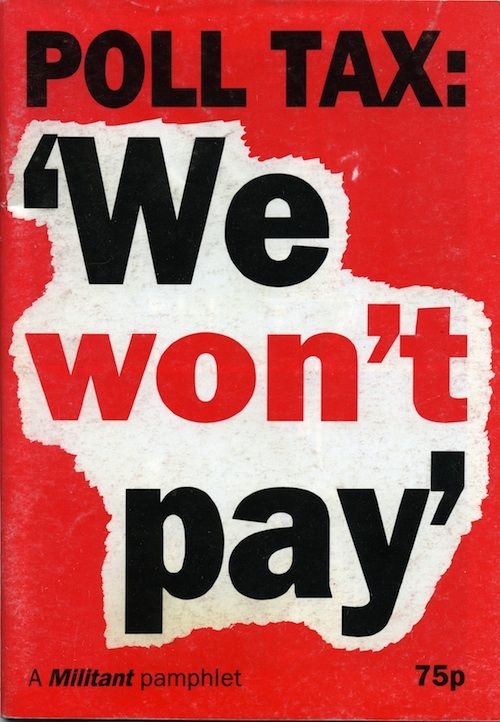 Progressively, in the Militant, Marxist theory was replaced by empty agitation and activism / Image: IMT
Progressively, in the Militant, Marxist theory was replaced by empty agitation and activism / Image: IMT
Thus, the political level of the Militant began to decline. This suited the leading clique around Taaffe very well, since educated cadres are able to criticise the leadership and correct any mistakes it might make – the last thing that Taaffe and co. wanted.
As the theoretical level suffered more and more, the turn to the right in the mass organisations in the late 1980s and 1990s and the political offensive launched by the capitalist class after the fall of the Berlin Wall, found a layer of the then-membership ill-equipped to cope with the new situation faced by the Tendency.
To hold the organisation together in these conditions, instead of laying emphasis on the need to raise the political level, Taaffe pushed forward a new agenda of abandoning the Labour Party in Britain, explaining that it had become an obstacle to the development of the Tendency. He raised the idea that if only they left the Labour Party, they would grow by leaps and bounds, by the tens of thousands even.
Once embarked on this road, Taaffe and his supporters set their course on adventurist, ultra-leftism. This, however, did not give the desired results, and the Taaffe organisation continued to haemorrhage thousands of members. Whole areas split away, such as Scotland and Liverpool (the two areas that Taaffe was responsible for on the leadership of the Militant). However, instead of honestly reappraising the situation they continued on their sectarian road. And the more they failed, the more sectarianism became embedded. This is the price they paid for the abandonment of basic Marxist education, of theory! It explains why today they are completely incapable of understanding what has happened to the Labour Party, for to do so would require admitting they made a big mistake back in 1991, something Taaffe is incapable of doing, as he would see it as damaging his own prestige.
Thus, not having learnt anything from their mistakes, the leadership continued to look for quick-fix shortcuts. One of these was their obsession with electoral politics, which was expressed in their launching of TUSC (Trade Unionist and Socialist Coalition, the electoral front set up by the CWI in Britain with the support of some trade unionists and other forces). This was a desperate attempt to get elected – at least onto the local councils – and use these positions to build from the top down, but without the troops on the ground in the form of sufficiently trained cadres. Instead of building on what they had inherited from the past, they began losing their positions – see Coventry, where, although they had lost the MP, they had at one time three councillors, but now have none.
With such developments, Taaffe’s natural inclination to demand respect from the ranks where none was due would have become even more entrenched. The internal regime was destined to go from bad to worse.
Authority of the leadership
Ted Grant pointed out that the only authority a genuinely revolutionary leadership can indeed claim is a political and moral one. A leadership that has a sufficient political level does not fear criticism and can answer any differences by the superiority of its theoretical understanding. An honest leadership also has no fear of admitting its mistakes, explaining why they were made and correcting their position. If, however, it does not admit and correct its mistakes, then it is destined to make more mistakes and to cover the previous mistakes with even bigger errors.
This is precisely what has happened to the leadership of the CWI under Taaffe. It made a big mistake in abandoning the Labour Party perspective and has not had the honesty and courage to admit so. This, rather than enhancing their authority, has diminished it, especially after Corbyn’s victory and the rise of the Labour Party left over the past few years. A leadership that lacks the necessary theoretical weight will always resort to organisational and administrative measures to silence opposition. This is a finished recipe for crises and splits.
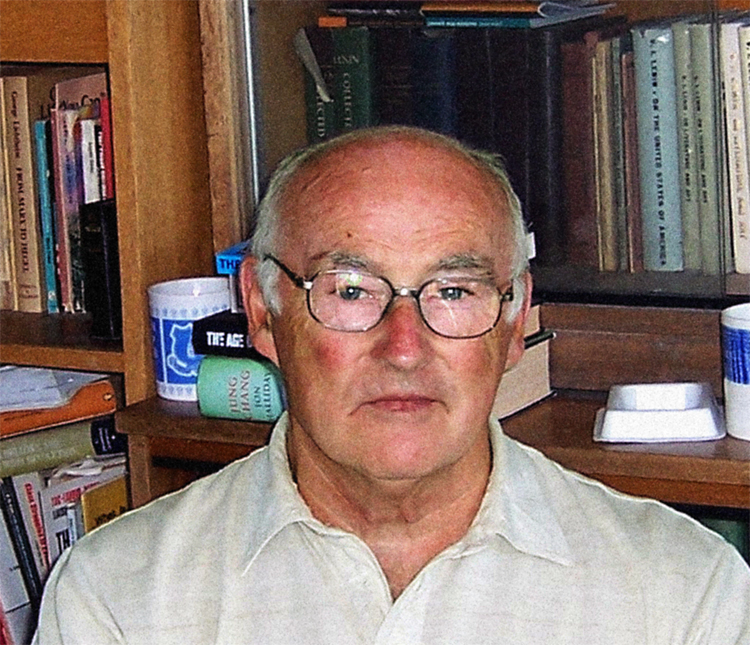 For 25 years, the Taaffe clique maintained themselves by bureaucratic methods. Now, their methods have caught up with them / Image: Andy Soh
For 25 years, the Taaffe clique maintained themselves by bureaucratic methods. Now, their methods have caught up with them / Image: Andy Soh
For over 25 years, the Taaffe clique succeeded in maintaining themselves by bureaucratic methods. But this approach inevitably leads to the destruction of a revolutionary organisation. Now, finally, their methods have caught up with them.
The issues quoted above as being the immediate cause of the conflict within the CWI did not fall from a clear blue sky. They must have been developing for some time, but have only emerged clearly now. Taaffe is accusing his opponents of the same methods and political weaknesses he has nurtured and is responsible for, which now are becoming more visible, even in the case of Ireland, once hailed as a model section by the same Taaffe. Much of Paul Murphy’s list of criticisms of the Irish section is very familiar, as what he describes was already present in the last few years up to the 1991-92 split, in the movement around the Poll Tax for instance.
The Anti-Poll Tax movement was a huge success, but as Ted Grant often stated, successes sometimes can be more problematic than defeats. The movement against the Poll Tax was a mass movement, and even the sizeable forces that the Militant had were still far too small to deal with the scope of that movement. In the process, political education was thrown out of the window, and the whole organisation concentrated purely on campaigning work. The political level of the branches declined, in effect becoming an adjunct to the anti-Poll Tax movement. Attention to recruitment, education and consolidation fell by the wayside. The end result was a weaker organisation, not a stronger one. Thus, the source of the problems in the Irish section of the CWI is to be found in Taaffe’s false method of building that he developed many years ago.
We have no doubt whatsoever that the present crisis in the CWI is a result, on the one hand of a bad political line, and on the other, of bureaucratic, Zinovievist methods. Our experience was that Taaffe cannot stand criticism of any sort, and if he finds himself in a minority, he will not hesitate to bully and browbeat any comrade who disagrees with him, and he won’t baulk even at the perspective of splitting the organisation. Such is the nature of bureaucratic sectarianism. This has reduced the CWI to nothing more than a sect.
Sectarianism and prestige politics
The emergence of Jeremy Corbyn as leader of the British Labour Party has produced a fundamental change, not just in the Labour Party, but in the whole of British politics. This much is abundantly evident to anyone with a minimum understanding of the political situation in Britain. But it is a closed book to Peter Taaffe and his clique. Their request to be accepted by the Labour Party was a stunt. When Taaffe reported to the National Committee that the request had been rejected, they all had a good laugh. “Thank God,” said Taaffe, “I was worried we would have been accepted.”
Prestige politics plays an important role in all this. Taaffe declared that the Labour Party had become a capitalist party and no longer a workers’ party. In order to reorient to the Labour Party he would have to admit that the perspective he based himself on for over 25 years, and which was one of the main issues of the 1992 split, was wrong.
Thus, at a time when half a million people have joined the Labour Party, this bankrupt sect has become a complete irrelevance, and still stands candidates against Labour, instead of joining in the decisive struggle within the Labour Party. In November, the TUSC steering committee decided it would no longer be standing candidates in elections. Instrumental in taking this decision was the RMT. In spite of this, the SP leadership still persisted in their sectarian line and announced it would be standing candidates against the Labour Party in the coming May local elections, while laughably at the same time demanding readmission into the Labour Party!
It is common knowledge that many comrades have abandoned the SP and joined the Labour Party. They have understood something that is self-evident: at the present time in Britain, the place where Marxists ought to be is in the ranks of the Labour Party, where a ferocious battle is being waged between the right wing and the rank and file that is struggling to take control. Taaffe stubbornly remains outside, lecturing from the sidelines, and has opposed unions like the RMT and FBU affiliating to the Labour Party. The FBU correctly re-affiliated and, no doubt at some stage, the RMT will do the same. This refusal to acknowledge the need to abandon their sectarian approach is a thoroughly reactionary position which has nothing in common with the ideas and methods of Lenin and Trotsky.
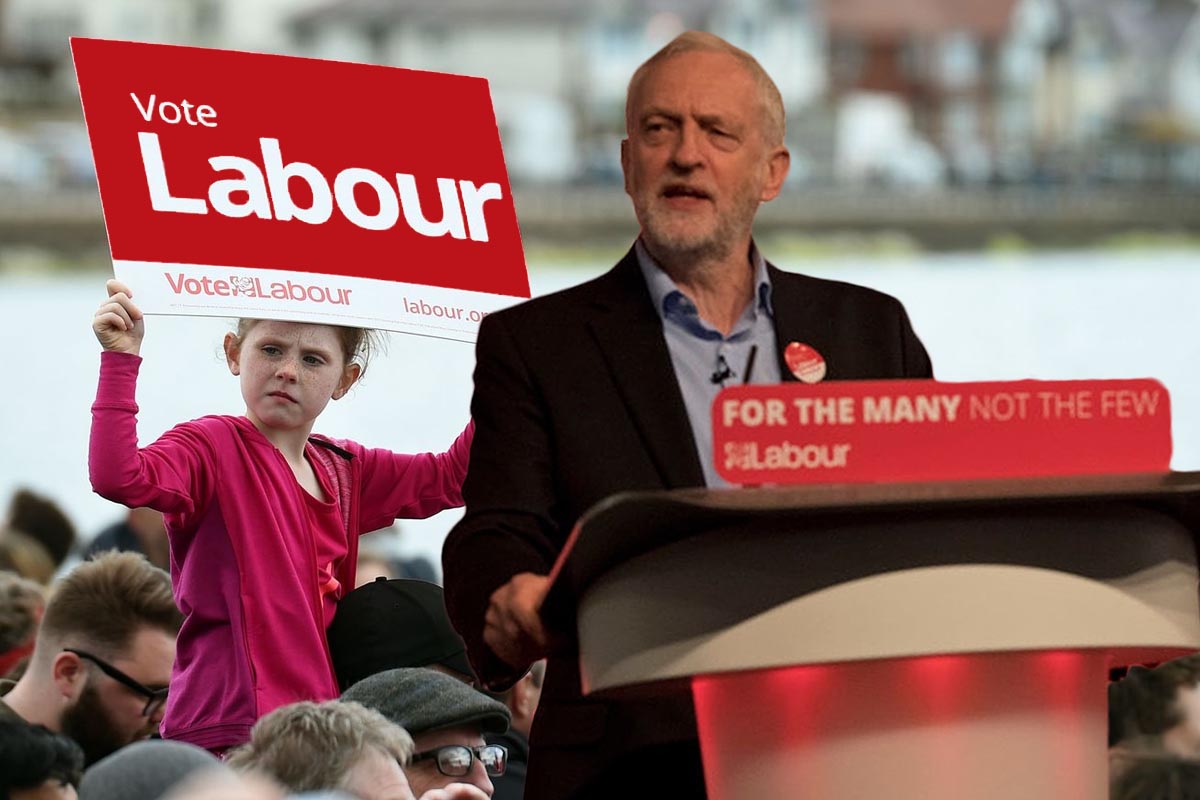 In order to reorient to the Labour Party, Taaffe would have to admit that the perspective he based himself on for over 25 years, and which was one of the main issues of the 1992 split, was wrong / Image: Socialist Appeal
In order to reorient to the Labour Party, Taaffe would have to admit that the perspective he based himself on for over 25 years, and which was one of the main issues of the 1992 split, was wrong / Image: Socialist Appeal
Furthermore, instead of fighting for a clear Marxist class position, the CWI has drifted in an opportunist direction, capitulating to petty-bourgeois pressures (watering down their electoral programme, supporting candidates of the Democratic Party in the US, etc.), while at the same time maintaining a sectarian approach.
Taaffe accuses his opponents in Ireland and elsewhere of all kinds of heinous political sins (liquidationism, opportunism, Mandelism, etc.). But if there is opportunism and liquidationism in the ranks of the CWI, these tendencies have not arisen overnight. The leadership is fully responsible for this chasing after short cuts, which is the basis for opportunism. It has been visible to all for quite some time.
It is in fact a bit rich for Taaffe to accuse the Irish section of Mandelism, when in the same document he admits that a debate on China within the CWI led “the IS on my initiative to propose a compromise” in which two different and contradictory positions on the issue were resolved into one! That is pure Mandelism and is in fact almost a repetition of the situation in 1964, when Ted Grant challenged the leadership of the “United Secretariat” to come out with a clear position on the class nature of China. They could not, of course, as the unity of that organisation was based on an unprincipled compromise between two contradictory positions on the question (that of the US SWP and that of Mandel).
This combination of opportunism with extreme sectarianism has produced results that are now plain for everyone to see. In Ireland, the comrades are grappling with the problem of mass work and public positions without the necessary cadre base. This cannot be resolved “on the hoof”, but requires a fundamental review of the work.
We are sure that there are many honest members of the CWI internationally who joined that organisation to fight for socialism. We invite every member of the CWI – and those who have left – to think carefully about what has happened. We also invite you to read the documents from the split in 1991-92, in which the minority led by Ted Grant and Alan Woods was bureaucratically expelled by the clique around Taaffe, and compare the methods that were used then to the methods that are being used now.
Comrades! The authentic ideas, traditions and policies of the Militant Tendency have been consistently preserved and defended by the IMT. We invite you to read the ideas on our website www.marxist.com, to read ‘How the Militant was Built – and How it was Destroyed’ by Rob Sewell, the ‘Interview with Ted Grant on the Militant’, and the biography of Ted Grant, The Permanent Revolutionary, where you will find our explanation of what occurred in the Militant. This will provide a complete answer to the falsifications which the Taaffe leadership have churned out for years. We ask you to read the warnings we made at the time, [see ‘The New Turn – A Threat To Forty Years Work’] and compare them to what has actually occurred. Consider your own experiences in the CWI and draw your own conclusions. If you agree, we appeal to you to join the International Marxist Tendency, the true heir of the best traditions of the Militant, and its fight for a new International, and help us build the forces of Marxism with the healthy methods of Ted Grant.
March, 2019

